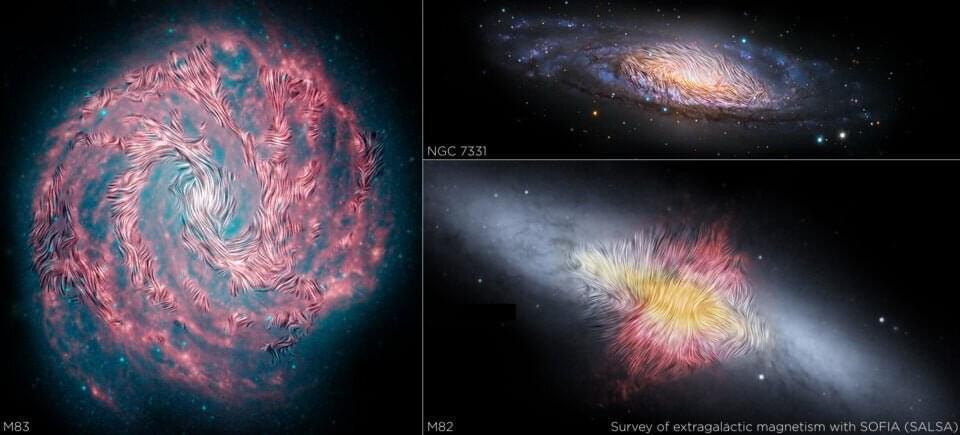Magnetic fields are common throughout the universe but incredibly challenging to study. They don’t directly emit or reflect light, and light from all along the electromagnetic spectrum remains the primary purveyor of astrophysical data. Instead, researchers have had to find the equivalent of cosmic iron filings—matter in galaxies that is sensitive to magnetic fields and also emits light marked by the fields’ structure and intensity.
In a new study published in The Astrophysical Journal, several Stanford astrophysicists have studied infrared signals from just such a material—magnetically aligned dust grains embedded in the cold, dense clouds of star-forming regions. A comparison to light from cosmic ray electrons that has been marked by magnetic fields in warmer, more diffuse material showed surprising differences in the measured magnetic fields of galaxies.
Stanford astrophysicist and member of the Kavli Institute for Particle Acceleration and Cosmology (KIPAC) Enrique Lopez-Rodriguez explains the differences and what they could mean for galactic growth and evolution.
